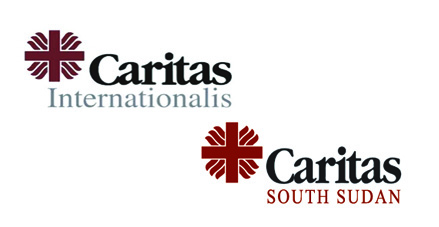CARITAS: Caritas Internationalis among Agencies Calling on Governments to Urgently Fight Global Famine

Sr. Jecinter Antoinette Okoth, FSSA
In an open letter by non-governmental organizations (NGOs) and civil societies across the globe including Caritas Internationalis, a confederation of over 150 Catholic relief agencies, the inter-agency has called on States and their leaders to urgently offer support to “the 270 million people facing hunger, starvation or famine all over the world.”
“We call on you to provide the additional $5.5 billion needed for urgent food assistance to reach more than 34 million girls, boys, women and men around the globe who are a step away from famine,” reads in part the open letter signed by 264 aid organizations worldwide.
“This assistance must begin immediate and must reach as directly as possible the people most in need, so they can take action to feed themselves today and in the future,” the concerned organizations stressed adding, “All countries should contribute their full and fair share, without diverting resources from meeting other pressing humanitarian needs.”
According to the aid organizations appealing for a quick and urgent action from Head of States, each day they bear witness to the suffering and “help people who are doing all they can to simply get through one more day.”
Including among the countries affected by hunger within Association of Member Episcopal Conferences in Eastern Africa (AMECEA) region are Ethiopia, South Sudan, Uganda and Sudan.
They further urge State leaders “to invest in alleviating poverty and hunger, in giving people the tools they need to build more resilient futures for themselves, sustainably adapt to climate change and guard against the shocks of Covid-19.”
This they said, will help to prevent future conflict and displacement and will also prevent future hunger and famines.
In the letter published Tuesday, April 20, the Inter-agency disclose, “Every day, we work with people who are fully capable of producing or earning enough to feed themselves and their families. These people are not starving, they are being starved.”
They added, “These girls and boys, men and women, are being starved by conflict and violence; by inequality; by the impacts of climate change; by the loss of land, jobs or prospects; by a fight against COVID-19 that has left them even further behind (with) women and girls who suffer the most.”
The aid organizations lament that amid sharing stories and evidence of hunger, starvation, and increasing humanitarian needs, it “does not prompt urgent action or sufficient funding.”
“The widening gap between the great needs we face and the limited assistance we are able to provide threatens to steal what hope remains,” they noted and continued, “We cannot allow all hope to be lost.”
The NGO’s and civil societies officials expressed in their joint letter that, “It is human actions that are driving famine and hunger and it is our actions that can stop the worst impacts. We all have a part to play.”
They emphasized, “But you, as Leaders, States and main duty bearers, have a unique responsibility. We call on you to take action now.”
In the open letter which was also signed by Caritas South Sudan the Inter-agency asked the State leaders to enhance their efforts and “work with all parties to end conflict and violence in all its forms.”
“The United Nations Secretary-General’s call for a global ceasefire must be immediately heeded,” they stressed adding that, “Humanitarian assistance must be allowed to reach communities without barriers or impediments so we can urgently support those most in need.”
The 264 organizations who observed that it is women and girls who suffer the most, have noted that, “There is no place for famine and starvation in the 21st century, (and) history will judge us all by the actions we take today.”


